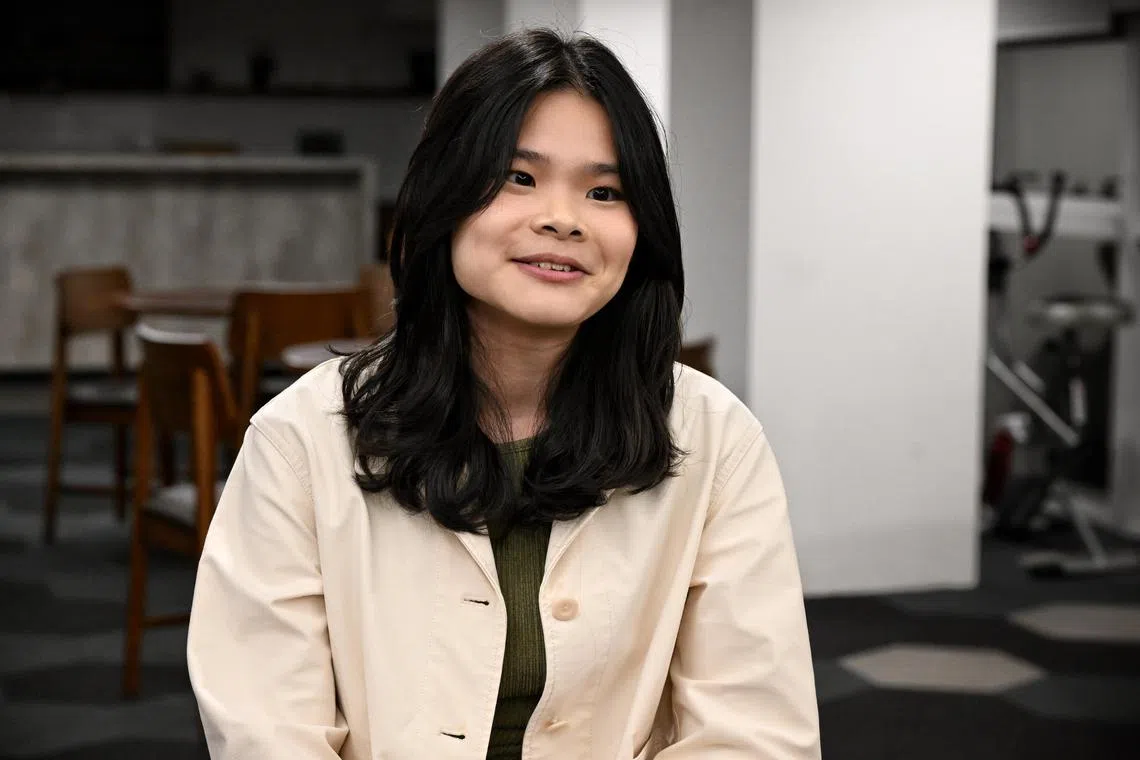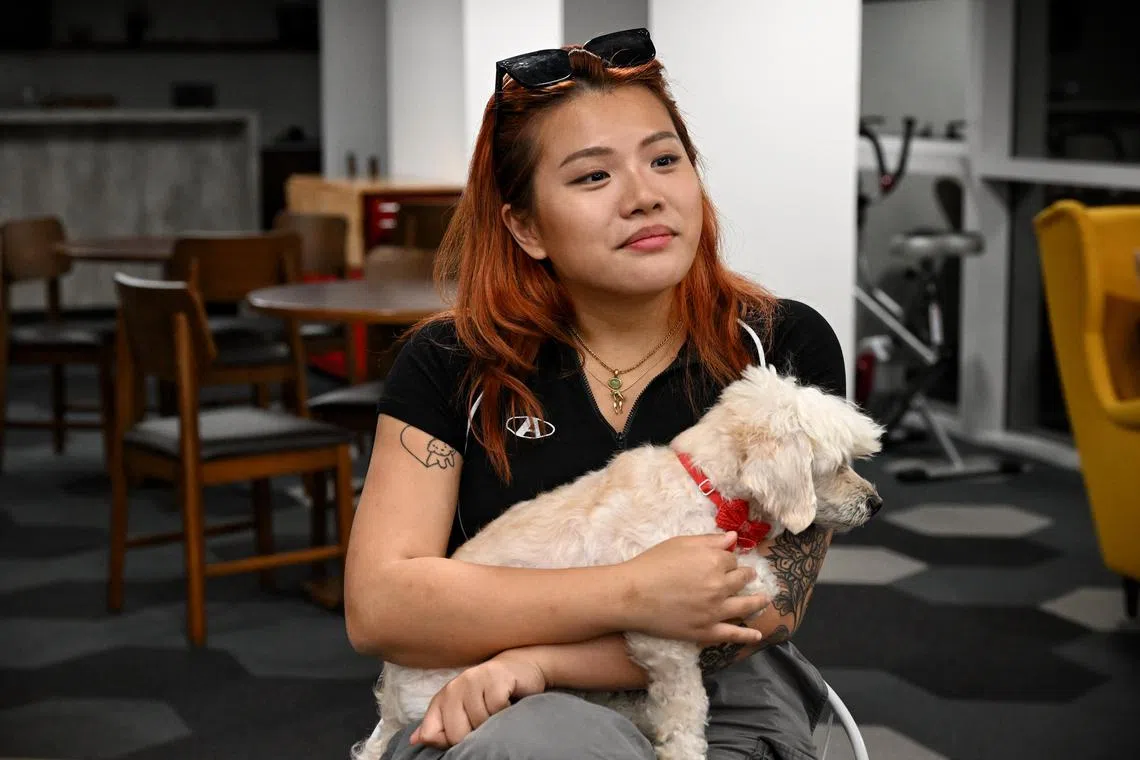The Usual Place Podcast
Speak good English or embrace Singlish: Is the lingual tug-of-war over?
Sign up now: Get ST's newsletters delivered to your inbox
Follow topic:
SINGAPORE - The kind of English spoken in Singapore has long been a discussion point.
Throwback to some 25 years ago, when then Prime Minister Goh Chok Tong urged Singaporeans to stop speaking Singlish and start using standard English.
These days though, while Singaporeans fiercely defend their use of Singlish and embrace the local accent, they believe English should be the language used as far as possible in the public space, a 2020 survey by the Institute of Policy Studies on race, religion and language found.
How did the nation get here, and what changed in the quest to speak good English?
These were the questions Audrey Wan, Bernadette Toh and Erin Liam, university students from NTU’s Wee Kim Wee School of Communication and Information, set out to answer in their final-year project, titled Eye on English.
I wanted to find out what they had found through the interviews they did with various groups and individuals such as a linguistics researcher, teachers, students, a former chief of government communications and a representative for the Speak Good English Movement.
Audrey, who graduated in 2024, joined me on The Usual Place podcast, along with actress and host Caitanya Tan and TikTok content creator Nicole Chen.
Kicking off our discussion, Audrey, 22, summed up the gist of her group project: “We did find that Singaporeans have relaxed, and we are embracing our mix of non-standard and standard English more.”

Recent university graduate Audrey Wan and her two peers looked at the standard of English in Singapore for their final-year project, titled Eye on English.
ST PHOTO: KUA CHEE SIONG
Foreigners, too, are impressed – and fascinated – with Singlish, added the 22-year-old, citing how Singlish phrases have gone viral globally.
While Singlish used to get a bad rap before, things are much different these days.
Words like “wah” and “shiok” are used in national campaigns, while Singaporean-accented dialogues have found new fans online.
Nicole, 26, is a content creator who uses lots of Singlish, and is proud of the way she sounds distinctly Singaporean.
In secondary school, she needed to “adapt, acclimatise and overcome” by using Singlish so that she wouldn’t feel left out. However, she conceded that she might now rely a little too much on the informal, colloquial form of English.
She realised that as she grew older, she could not articulate her thoughts well in standard English, and deferred to using Singlish to get across what she means.
After years of heavy Singlish usage, the realisation that she now struggles with using standard English is a “wake-up call”.

Content creator Nicole Chen, better known as Nicole Liel online, expresses herself more in Singlish and said it can be difficult for her to switch back to standard English. Her dog Bueno can understand any language once food is offered.
ST PHOTO: KUA CHEE SIONG
Still, Singlish has its perks, as Audrey highlighted in our conversation.
The people she spoke with for her group project said they would throw in Singlish to “boost (their) exchanges with (their) co-workers” and make themselves relatable.
“Of course, if it’s formal boardroom meetings, then using standard English would be better because there’s jargon that you use in different jobs. But passing (someone) in the corridor or visiting them at their desk, it’s very common nowadays to just slip into Singlish.”
In its final-year project, the group noted that people’s concerns have eased as they recognise that Singaporeans can be understood while speaking Singlish.
For example, the government’s Speak Good English Movement ran a TikTok campaign in 2022 about code-switching, and used the hashtag “#CanYouCodeSwitch”. In linguistics, code-switching refers to speakers changing the type of language they use based on certain contexts and depending on who they are speaking with.
The movement, which was launched in 2000 by PM Goh then to “encourage Singaporeans to speak grammatically correct English that is universally understood”, has kept up with changing attitudes.
It acknowledged that Singlish could exist alongside standard English in people’s language repertoires, the group wrote in its report.
As Ms Pamela Tan, the movement’s secretariat, told them: “It is not the movement’s intent to pit ourselves against Singlish. If you are able to code-switch, that is a privilege.”
During our conversation on The Usual Place podcast, Audrey said that code-switching is a powerful tool that Singaporeans can have as part of their language inventory to use when necessary.
“If you were to only know Singlish, then there might be a part of the world that’s limited to you, and likewise with only knowing standard English.”
Caitanya, who creates content on social media and shares with her audience how to pronounce words correctly in some videos, pointed out that the way Singaporeans speak has changed over generations. Ultimately, she mused, it’s about going with the flow.

Actress, emcee and voiceover artist Caitanya Tan, who shares with her social media audience how to pronounce words correctly, said that sometimes, you just have to go with the flow as languages change all the time.
ST PHOTO: KUA CHEE SIONG
Speaking to Nicole during the podcast, the 37-year-old millennial said: “When Gen Zers speak, I hear you switch from one accent to another... and you go back and forth with all these words. To me, this is a whole new lingo.
“We’re creating new languages as we move forward, so why would that not apply to Singaporean English versus standard British English, or a mix of them both with ‘lah’ at the back?”
Either way, she sees Singlish as its “own language”, rather than ungrammatical or broken English. “There’s more than just one way to say things,” said Caitanya.
Another point that came up on the podcast was how Singaporeans who don’t use Singlish could come across as snobs.
Personally I agree, but as my guests acknowledged, it’s always about context. For example, if switching to a neutral accent when we’re overseas might help with being understood, then by all means, go for it.
We discussed a 2023 video in which a guy, who said he was from Singapore, was slammed for using a Western accent in a street interview in Canada.
Nicole felt the backlash came from a place of pride. We see Singlish as a big part of our national identity, she said, thumping her chest.
At the end of it all, I wanted to know if Audrey and her teammates found the answer to the question that they put forth at the start of their project: Is our brand of English here to stay?
No doubt, she said. But she added that a question they were frequently asked was whether Singapore was giving up its push to encourage people to speak Standard English.
Audrey said: “We realised it’s not so much giving up. It’s just accepting that we are along for the ride, and that Singlish is going to keep evolving, and so is standard Singaporean English. It’s the same as any other variety of English around the world, and it is here to stay.”
How? Can anot?
I’ll see you at The Usual Place,
Nat
------
DM Natasha your thoughts on this topic at her IG: https://str.sg/8Wav
Host: Natasha Ann Zachariah ( natashaz@sph.com.sg
Edited by producers: Teo Tong Kai, Eden Soh and Zachary Lim
Executive producers: Ernest Luis
Filmed by: ST Video
Follow The Usual Place Podcast here and get notified for new episode drops:
Channel: https://str.sg/5nfm
Apple Podcasts: https://str.sg/9ijX
Spotify: https://str.sg/cd2P
ST Podcasts YouTube: https://str.sg/4Vwsa
Feedback to: podcast@sph.com.sg
Read Natasha Zachariah’s articles: https://str.sg/iSXm
Follow Natasha on LinkedIn: https://str.sg/v6DN
---
Discover more ST podcast channels:
All-in-one ST Podcasts channel: https://str.sg/wvz7
The Usual Place: https://str.sg/wEr7u
In Your Opinion: https://str.sg/w7Qt
COE Watch: https://str.sg/iTtE
Asian Insider: https://str.sg/JWa7
Health Check: https://str.sg/JWaN
Green Pulse: https://str.sg/JWaf
Your Money & Career: https://str.sg/wB2m
Hard Tackle: https://str.sg/JWRE
#PopVultures: https://str.sg/JWad
Music Lab: https://str.sg/w9TX
---
ST Podcast website: http://str.sg/stpodcasts
ST Podcasts YouTube: https://str.sg/4Vwsa
---
Special edition series:
True Crimes Of Asia (6 eps): https://str.sg/i44T
The Unsolved Mysteries of South-east Asia (5 eps): https://str.sg/wuZ2
Invisible Asia (9 eps): https://str.sg/wuZn
Stop Scams (10 eps): https://str.sg/wuZB
Singapore’s War On Covid (5 eps): https://str.sg/wuJa
---
Get The Straits Times’ app, which has a dedicated podcast player section:
The App Store: https://str.sg/icyB
Google Play: https://str.sg/icyX


